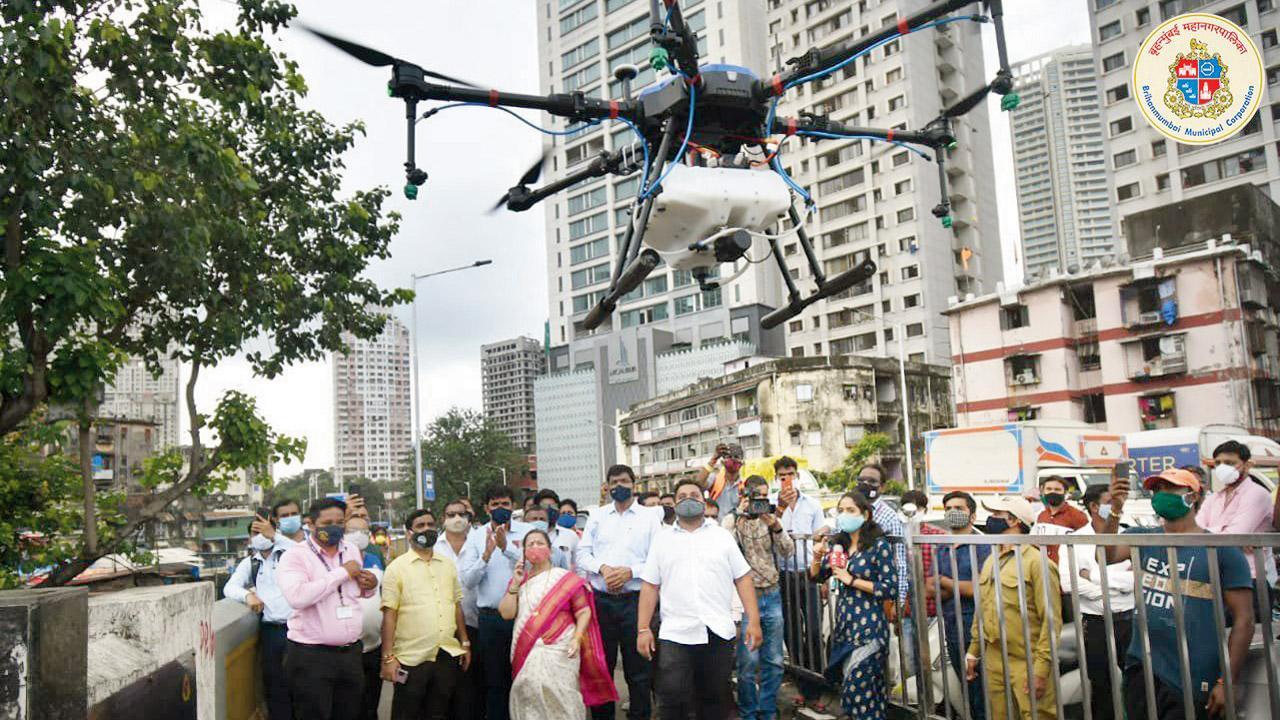A provision of Rs 35 crore has been proposed in the BMC budget for Mosquito Breeding Detectors

Anti-larval treatments being carried through drones. Pic/Twitter
After employing age-old methods to eliminate mosquito breeding spots, the BMC will now tap into more modern techniques. Every year, the insecticide department of the BMC manually detects and destroys thousands of breeding sights. Last monsoon, for the first time, a drone was used to fumigate spots which are otherwise difficult to access, such as constructions sites, abandoned mill compounds and slum pockets. Its success has inspired the BMC to propose a provision of Rs 35 crore in the budget estimates of 2022-23 for a Mosquito Breeding Detector (MBD) project.
ADVERTISEMENT
The drone activity was first carried out in G South ward, comprising Mahalaxmi, Worli, Parel. The equipment was brought under Corporate Social Responsibility programme for Rs 7 lakh and could fly to up to 40 metres (height of 12-storey building). The drone was equipped with a 10-litre tank in which the disinfectants were kept, and had the potential to spray the chemical in a plot of the size of five hectares in an hour. “Drones are being used at prominent places which are unreachable for labour. We will increase the number of drones in order to restrict breeding,” said an official from the BMC.
The Insecticide department of the BMC found and destroyed 47,473 mosquito breeding sites across the city from January to August 2021 by removing 12,038 waste tyres and 2,80,987 items. A female mosquito typically lays 100 to 150 eggs each time and does this at least four times during her lifespan of three weeks. Which means, one female mosquito can reproduce 400 to 600 mosquitoes.
47k
No. of breeding sites destroyed in 2021
 Subscribe today by clicking the link and stay updated with the latest news!" Click here!
Subscribe today by clicking the link and stay updated with the latest news!" Click here!







